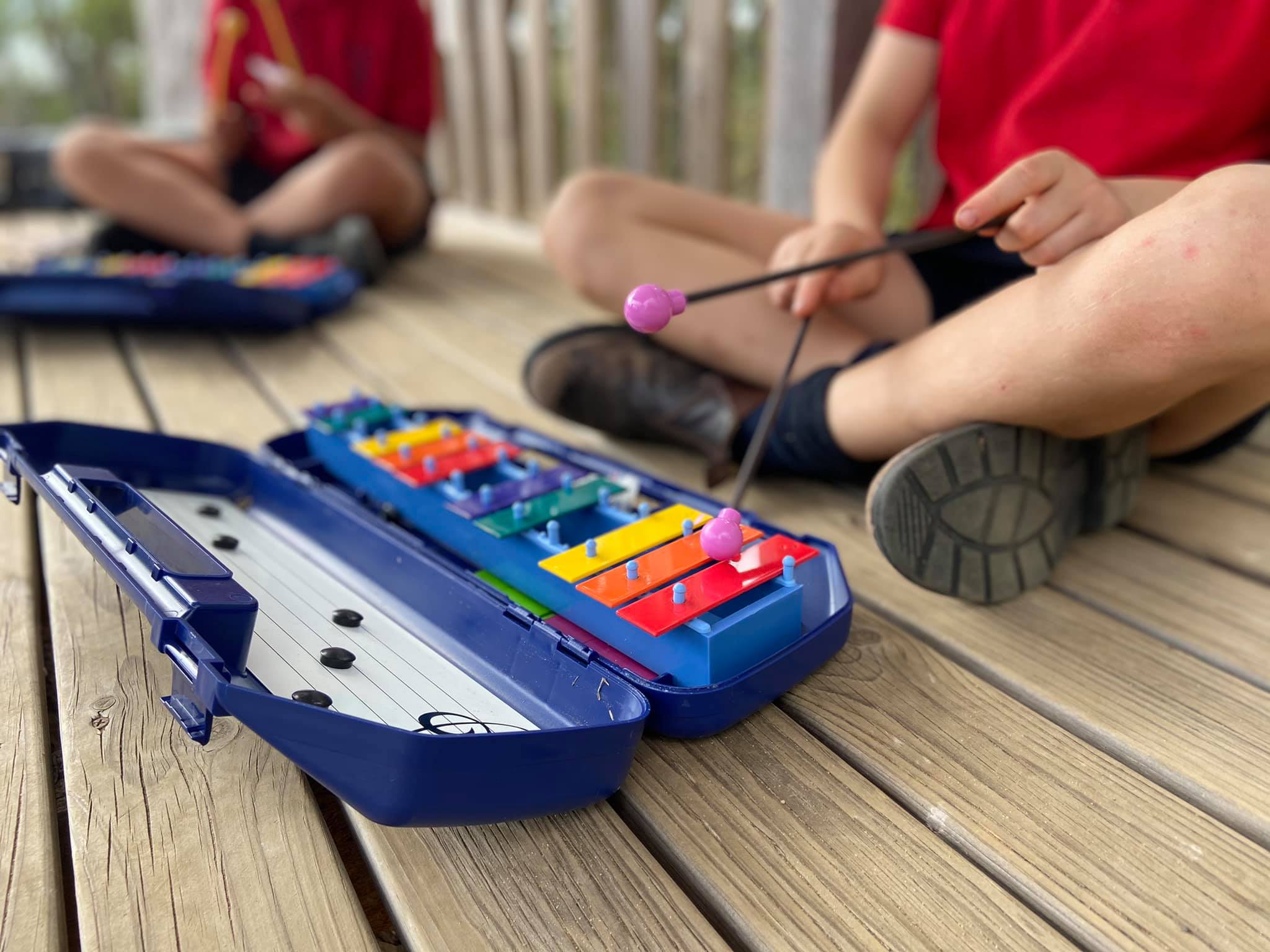Curriculum
Kamana (Wild Passport)/ Science
Kamana – from the Hawaiian word for ‘power’ – is a weekly half-day outdoor lesson with activities mapped to the Australian Curriculum: Science. It’s a chance for positive authentic learning that encourages and develops student wonderings, inquisitiveness and curiosity, experimentation and outdoor skills. The WILD Passport and journal, adapted to the local context of our school, records student competencies and accomplishments in Kamana’s 7 focus areas:
- Fire
- Rope
- Shelter
- Woodcraft
- Nature
- Weather
- The Senses
Kamana also provides an opportunity for exploring the General Capabilities of the Australian Curriculum – in particular Personal and Social Capability, Ethical Understanding, Critical and Creative Thinking and Intercultural Understanding.
Students progress through a range of activities that not only equip them skills to draw on for life but promote wellbeing and ignite a ‘spark’ that contributes to enhanced learning outcomes.
Our unique natural environment allows us to successfully deliver the Kamana program. Students have access to a range of outdoor learning environments including Bush Village, Food Forest and Market Garden, Heritage Bushland, Fire Pit Circle and Reconciliation Garden. Being close to the Belair National Park and Sturt River allows for local excursions, walks and further exploration of our local environs.
We’ve developed a risk benefit assessment booklet – in partnership with children – to address risks associated with many of the activities. This also forms a vital part of the learning process.
Kamana facilitates connection with nature and a deep understanding of Country – our school sits on the land of the Kaurna people – and the customs and practices of the traditional owners.

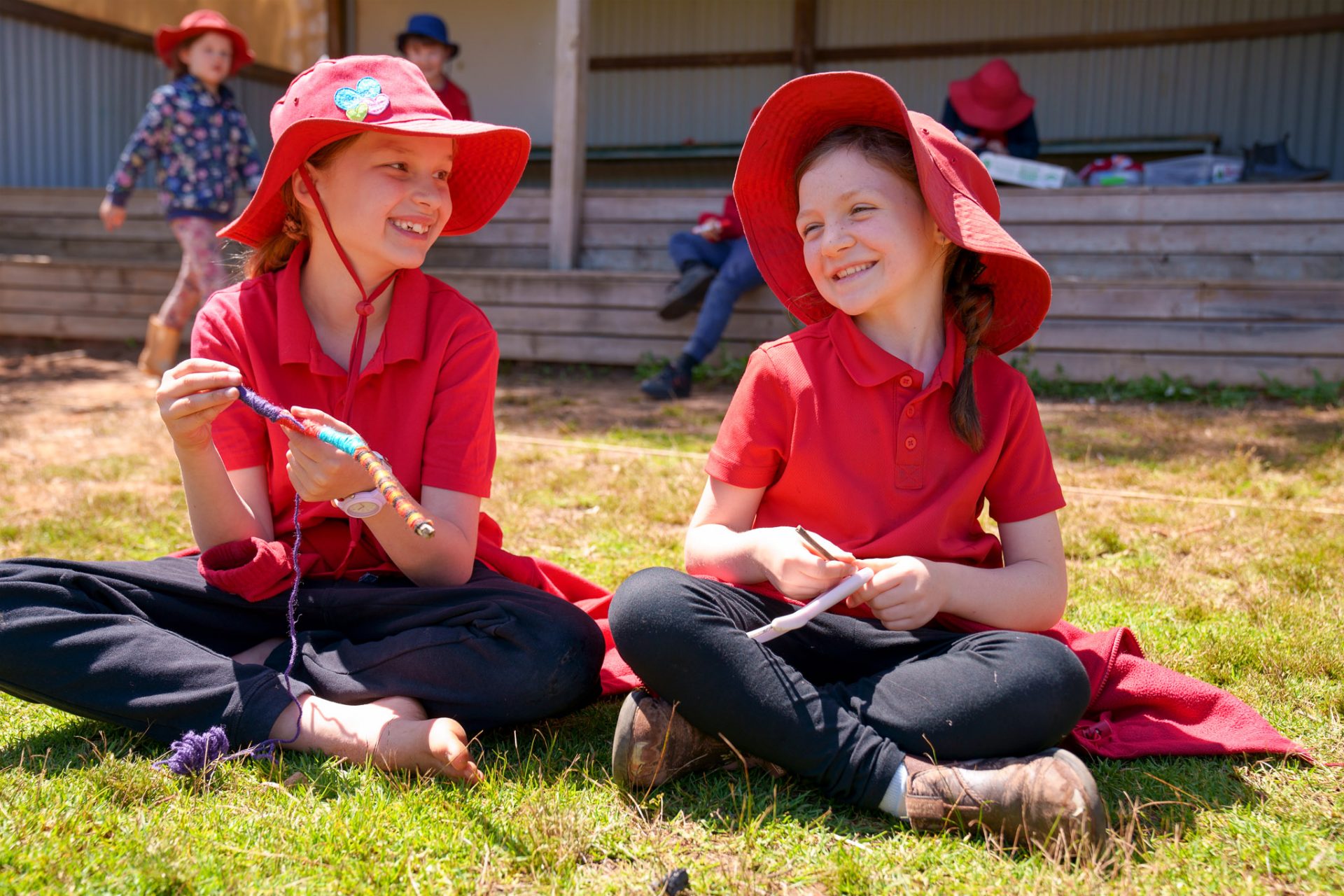
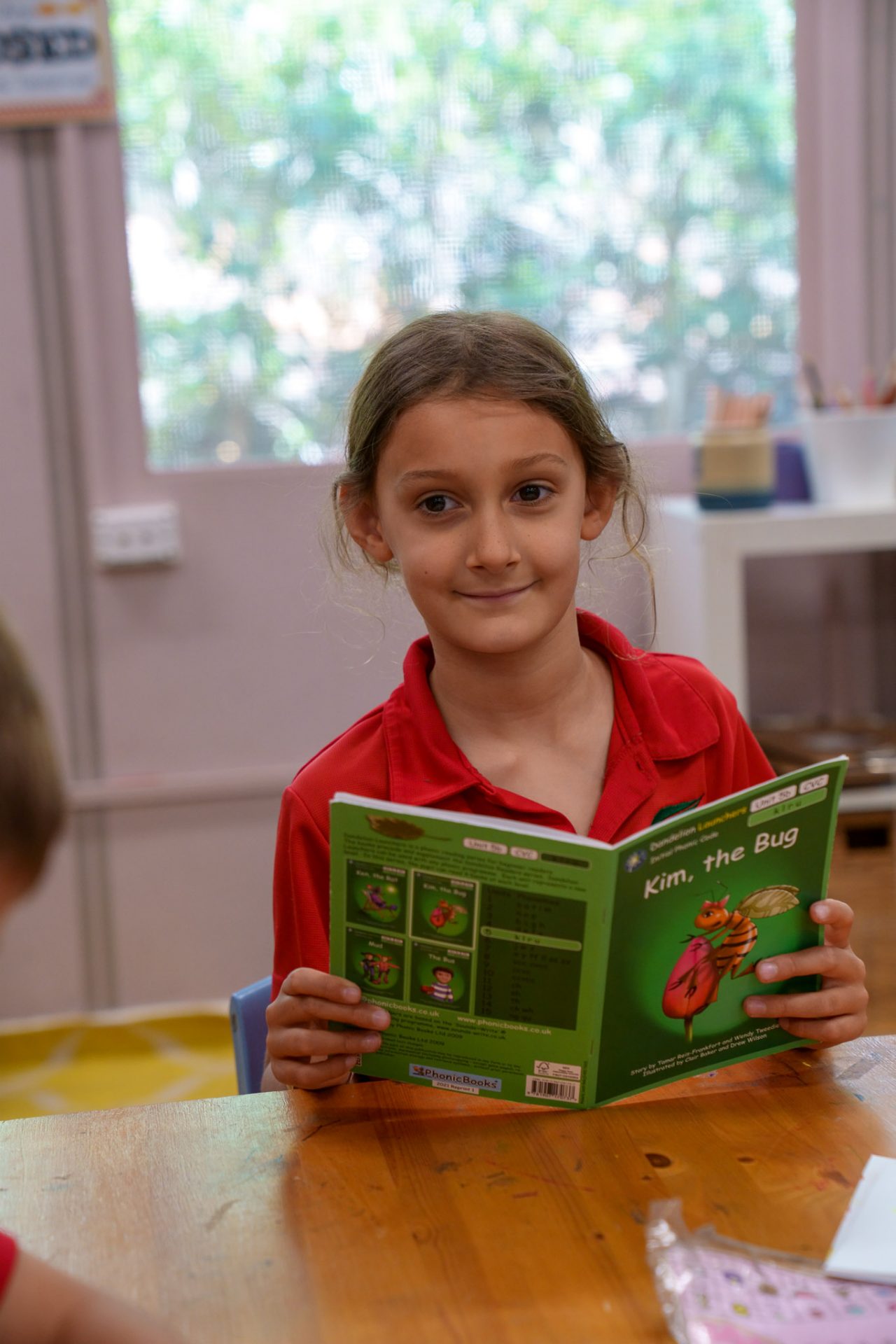

Literacy
Our students learn through targeted and authentic learning experiences to support their development of deep literacy knowledge, understanding and skills. Through active participation in literacy education, our teachers promote a growth mindset with a focus on personal best and continuous improvement, celebrating students as they progress.
Literacy learning at Upper Sturt Primary School means listening, reading, viewing, speaking and writing, as well as creating and understanding texts across all curriculum areas. Our approach aims to support students in the early years to ‘learn to read’ so that they are successfully able to ‘read to learn’. This is underpinned by the Wellbeing for Learning and Life framework, maximising students’ wellbeing and self-esteem through accomplishment and feelings of competence and confidence.
Literacy encompasses the knowledge and skills students need to:
- access, understand, analyse and evaluate information
- make meaning and express thoughts and emotions
- present ideas and opinions
- interact with others
- participate in activities at school and in their lives beyond school.
We also give the students the opportunity to apply their learnt literacy skills and knowledge into context within our outdoor environment.
Numeracy
Throughout the school year, our students will engage in intentional and authentic learning experiences to support their development of deep numeracy knowledge, understanding and skills. Through active participation in numeracy learning, students will show positive mathematical mindsets with a focus on personal best, continuous improvement, and celebration of progress. They will become confident and competent users of mathematics, investigating, representing and interpreting real life situations as active numerate citizens.
Students will be given the tools to problem solve and reason in number and algebra, measurement and geometry, statistics and probability. They will learn the connection between numeracy and other disciplines and appreciate mathematics as accessible and enjoyable. They will also learn how to apply and contextualise their numeracy skills and knowledge into our outdoor environment.
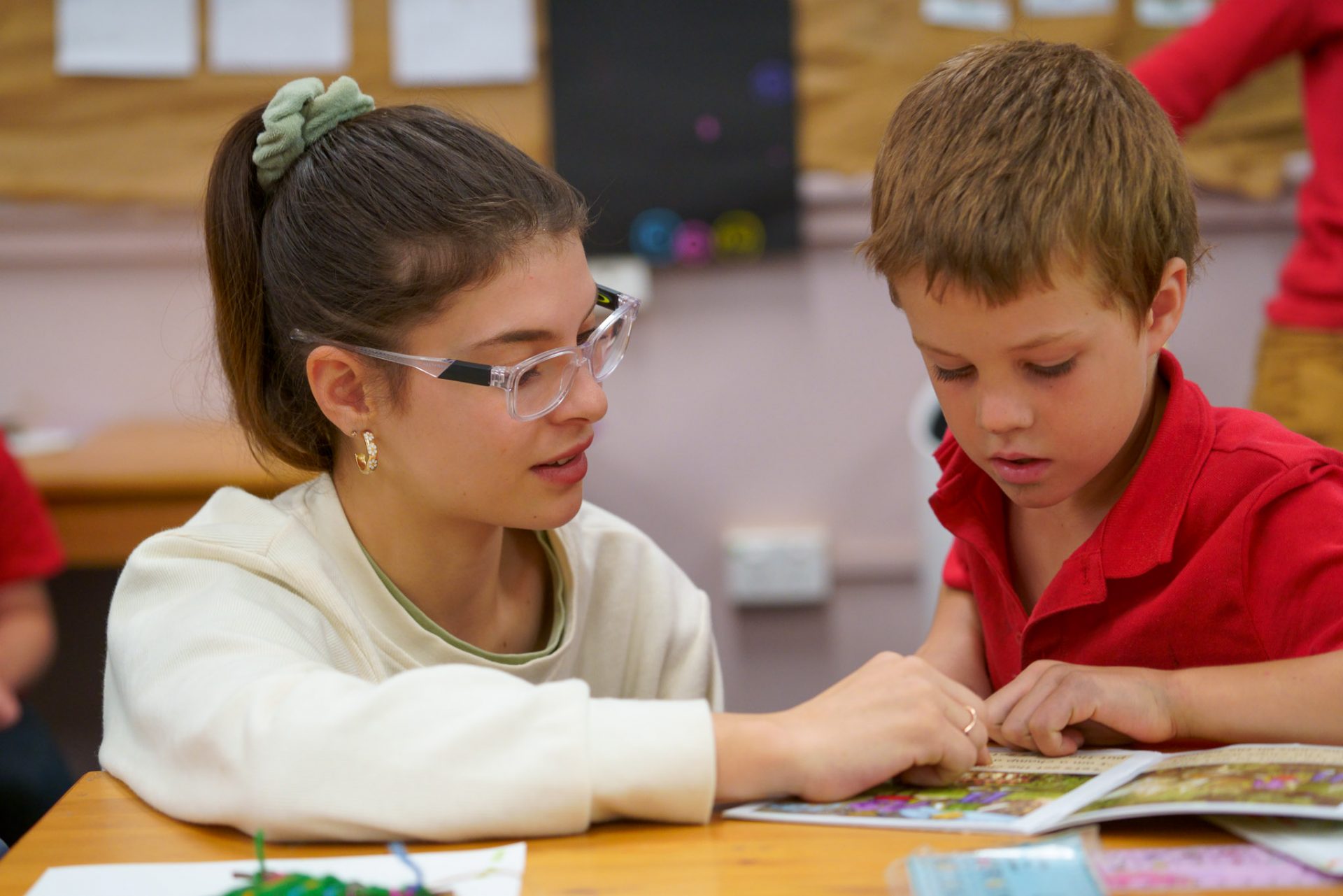
Project Based Learning
We develop project-based learning to align with an area of personal interest for each child within an agreed whole school topic. These topics allow for cross-curricula and deep, authentic learning. It not only engages children in their choice of inquiry discovery but is an effective way to improve independent learning. It requires responsibility, time management, research and presentation skills. Teachers work with each student through conferencing and planning sessions to map out the project, then support each child to achieve their planned outcome. These projects are sometimes completed in groups and sometimes individually.
Kaurna
One of the key goals of our Reconciliation Action Plan is to have Kaurna language be an integral part of daily life at our school, including in the classroom, during ceremonies and school events.
To that end, our weekly Kaurna language and cultural lessons support our students’ intercultural understanding, encourages an empathy for the goals of reconciliation and further enhances their connection to Country.
Working closely with Kaurna members and elders, especially our close relationship with Uncle Tamaru, provides authenticity and a richness to our program.
The students enjoy excursions and both on- and off-site special events, and are involved in the ongoing care, maintenance and development of our Aboriginal Reconciliation Garden, where they learn about native plants, bush tucker and bush medicine.
Students can connect their Kaurna language and knowledge to Country as the school, with its unique natural environment, sits on Kaurna land. We continue to acknowledge and respect the Kaurna people as the traditional owners of this land.

Physical Education
Physical Education sessions at USPS provide students with the knowledge, understanding and skills to lead healthy, safe and active lives. A games-based approach encourages participation and fair play while catering for children of all abilities and levels of experience. Children are encouraged to participate in learning and play that promotes engagement with outdoor settings and the natural environment. The school’s values of resilience, independence, curiosity and kindness are developed through HPE sessions. In the Early Years we have a focus on fundamental movement skills and team games with sport specific activities occur in the Primary Years. Sporting Schools Australia provides all students with the opportunity to participate in specialist coaching in a range of sports/ activities including football, softball, orienteering, tennis, volleyball, soccer etc.
SAPSASA and School Sport – Students have the opportunity to further develop their skills through a range of regional tournaments and competitions including Athletics, Swimming, Cross Country and Mountain Biking. The school also has soccer team that competes in the Southern Districts Junior Soccer Association on Saturday mornings during Winter (Terms 2 and 3).
Performing Arts
Performing Arts consists of curriculum areas music, dance and drama. Students’ creativity and imaginations are ignited through games, improvisation, songs and other interactive activities. Performing Arts classes are designed to give students opportunities to create, design and produce a range of artistic works.
Alongside developing creative and performance skills, students build self-efficacy, confidence and sense of self as they are supported to step out of their comfort zones, try new things and be brave.
It is emphasised that audience skills and performance skills are of equal value, so students are taken on regular excursions to theatres, festivals and performances to embed our school value of respect and kindness to others.
Students have the opportunity to perform at our two annual school showcases, and other local venues throughout the school year.
Showcase night is a special event at our school. Students learning and personal achievements are celebrated with the whole school community. Families and friends are encouraged to partake with their children whether it be joining in a whole school dance or pantomime performance. It is a night full of community and celebration.
Garden
Content coming soon.
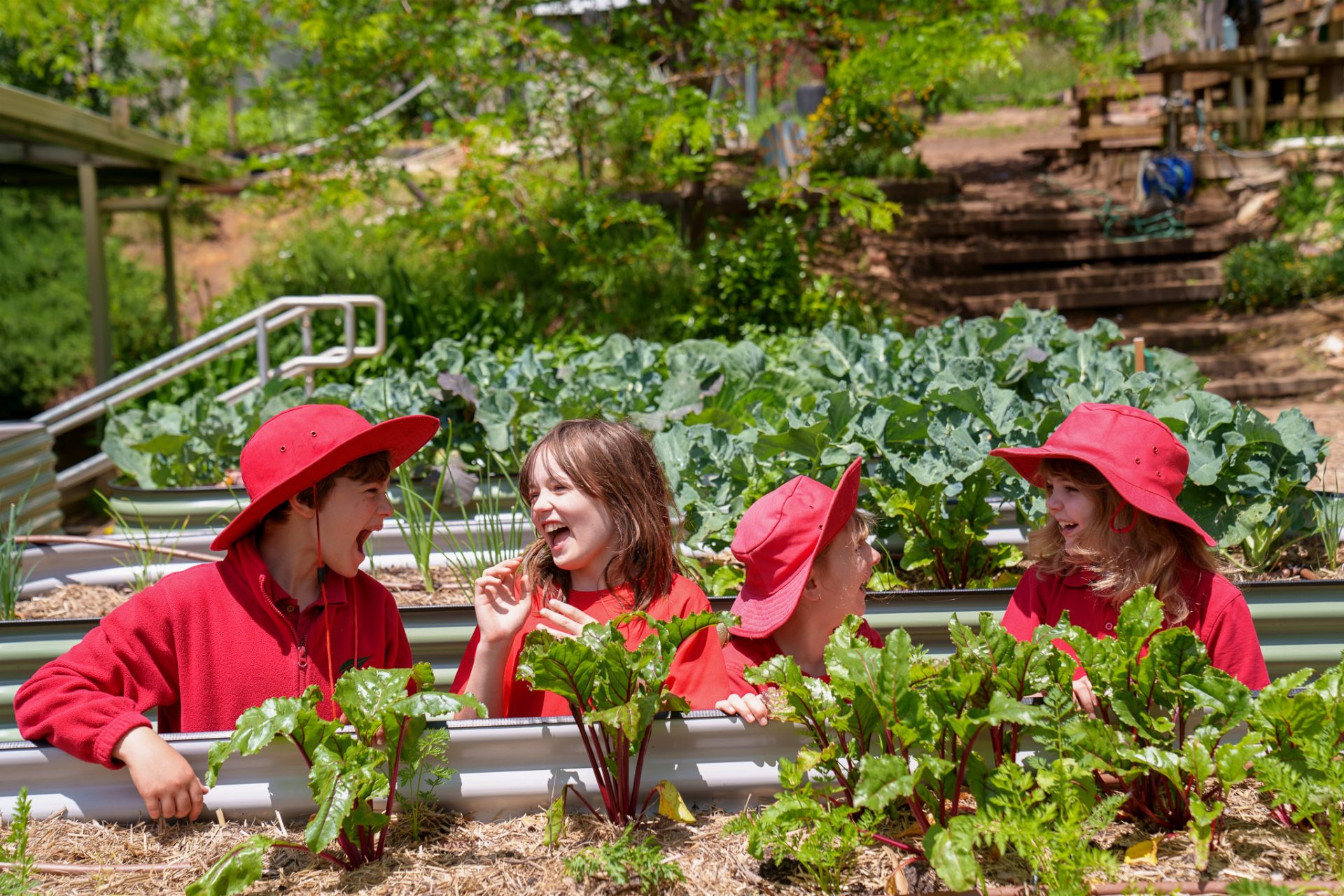
Instrumental Music:
Performing arts are also encouraged at Upper Sturt Primary with students able to engage in on-site music lessons with our local instrument teacher – Jace.
With a focus on building a strong foundation of technique and musical knowledge, our music teacher creates a welcoming and supportive learning environment where students can develop their skills and confidence.
If you’re interested in booking a lessons contact Jace at jacesnel@gmail.com or on his website https://thegalah.com.au/ – where you can also find answers to a lot of questions about ages to learn, instrument size, beginner instruments etc!
Now offering lessons in Guitar, Drums, Ukulele, or Piano.
Available to all students.
